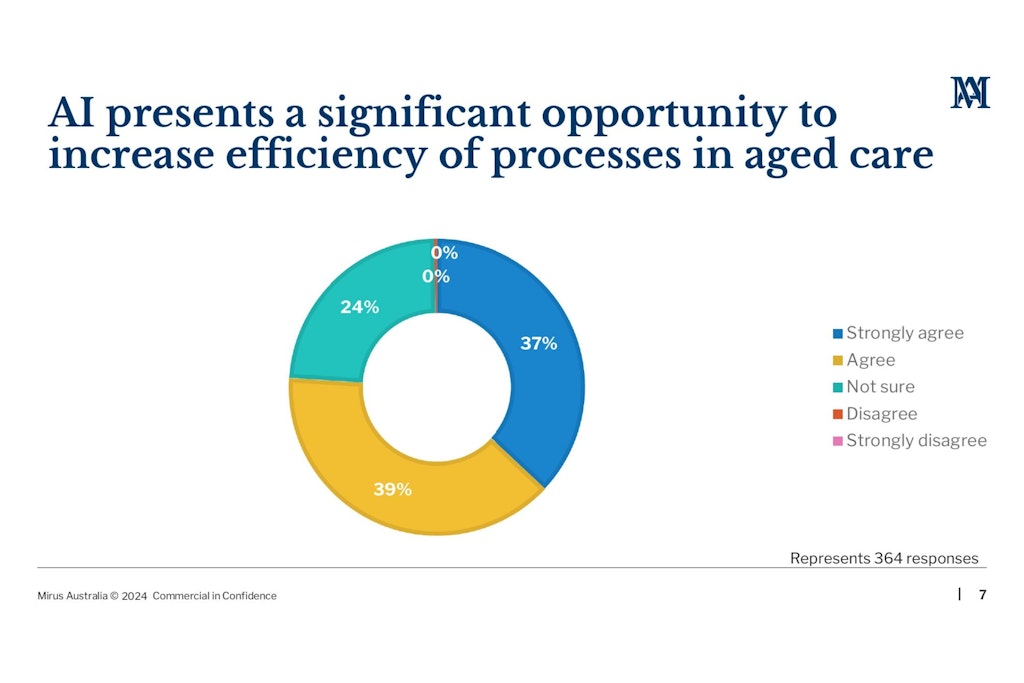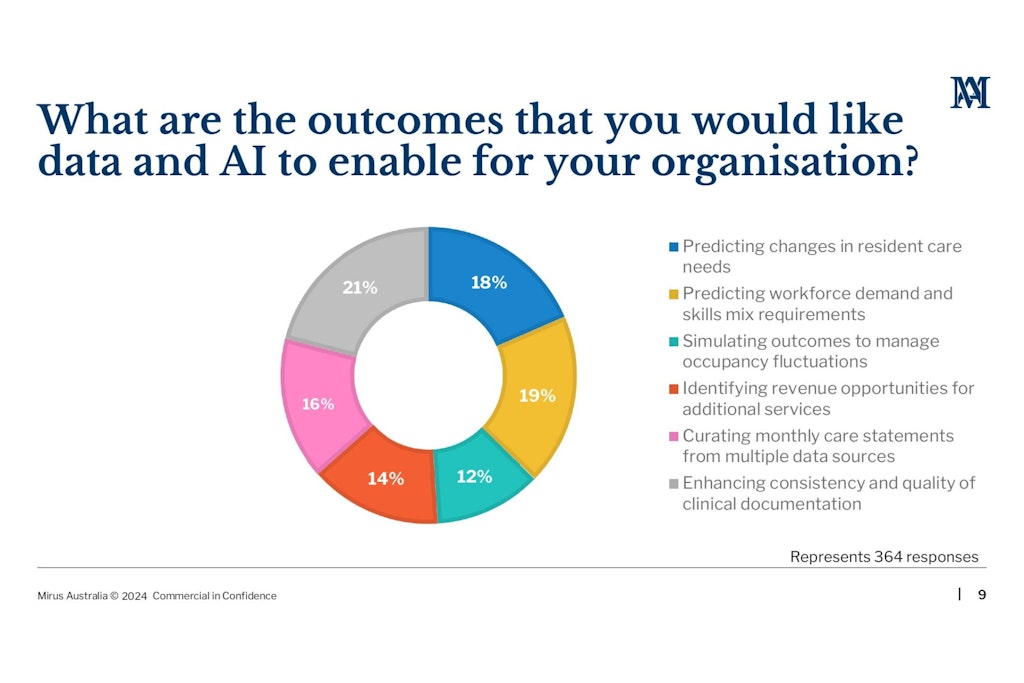Early adopters of AI in aged care are already seeing its impact
Last updated on 13 June 2024

Artificial intelligence has roared into the mainstream world with AI-based systems more accessible than ever. With that rapid rise comes plenty of uncertainty and apprehension and many of us are still learning about how it can be adopted and best used.
The topic of AI in aged care was recently discussed in Mirus Australia’s webinar How AI is revolutionising clinical processes in aged care and home care.
Andrew Farmer, Partner and CEO at Mirus Australia, said AI’s evolution into an easily accessible technology allows aged care to solve some of its problems.
“It’s all about the data they use and that has been holding aged care back; our ability to have clean data and bring our data together. […] That is where the opportunity lies: can we use these sophisticated algorithmic, neural network programming to answer questions or deliver information and results that we’ve never been able to do before,” Mr Farmer said.
The webinar also featured insights from executives at McLean Care, Mercy Care and Alino Living, which Hello leaders highlight in this article.
Real-world examples from the industry
MercyCare’s Phil Martin, Executive Director of Aged Care Services, said his organisation has embraced AI in several areas, including AN-ACC funding and home care route management optimisation.
“We’re working on building an AI policy and procedure chatbot for our frontline aged care staff, effectively allowing staff to talk to our policies and procedures. They’ll be able to ask a question in any language and the chatbot will search our database, provide them with information and even give them references so they can go to the relevant section,” Mr Martin said.
“We’re also using AI avatars to deliver toolbox training to our staff. We’re doing this in multiple languages with avatars that reflect the diversity of our team. We haven’t had to hire a translator or hire an actor.”
Mr Martin added that he recently used Chat GPT to assist in writing a board report. He uploaded an array of detailed information from multiple sources and asked Chat GPT to summarise it. Importantly, he still reviewed the document and information, but it condensed hours of work into a 90-minute task.

Over at Alino Living, CEO Justin Dover explained that they’re in the early stages of using AI to help increase efficiencies for quality data.
“Our teams spend two weeks a month just pulling the data, analysing and then trying to make changes. A lot of that work is manual so we’re trying to automate as much of that as we can because it’s just dead time,” he said.
“We’d rather spend that time focusing on the outcomes for the residents and staff versus trawling through the data in different clinical systems across our sites.”
“We’re not using it to reduce wages it’s about using our wages better. That’s what the focus is; to try and make sure that any model that we put in place, all of that data has a direct outcome for the residents,” he added.
Sue Thomson, CEO of McLean Care, said innovation is a cornerstone of their organisation as they may not withstand funding and operational pressures otherwise because they operate in smaller communities.
“Our iAgehealth offering is an intersection between technology and providing a workforce solution. Behind that, we are building algorithms within our platform to collect data so that we can move our clinical model from a stop-and-fix model to one that’s about prediction and prevention,” she said.
“From a clinical perspective, we have to be a lot smarter in terms of how we manage our clinical outcomes for older people. Right now, not a lot of programs can bring everything together so you can analyse it properly and undertake a predictive analytic function.”
Looking to the future

With most providers ready to introduce an AI-based system into their organisation, Ms Thomson echoed the thoughts of many when she said the take-up of technology is critical.
“AI will definitely have to have a focus. One of the things we probably don’t pay enough attention to is the change methodology. There’s lots of rhetoric around AI and technology in general doing away with jobs. […] No, we are supporting existing workforces to deliver better services and to focus on what is important and that is the core service delivery,” she said.
Ms Thomson also said there needs to be a focus on clinical governance models that support the adoption of technology and AI within the clinical care space so the sector does not miss out on the opportunity to “get it right”.
Efficiency is the number one focus for Mr Dover to overcome workforce issues, while he wants to collect useful data that can be used for the right purposes rather than just sitting there.
“The exciting part for me is it’s going to unleash the staff more on the floor, being able to do more things to improve the lives of the residents. Once I can trust the data and that the AI model is doing what we’re asking it to do, that’ll give us even more efficiencies which in turn, flows onto the residents,” he explained.
At MercyCare, Mr Martin said they have already introduced motion sensors into their homes that utilise AI to assist in falls prevention and awareness without impacting resident privacy.
“That’s today and tomorrow we’re thinking about how we can use this system with AI to identify things such as decreasing mobility trends to prompt a physio or nursing review. Using this data is about informing our clinical team and alerting them to potential deterioration,” he said.